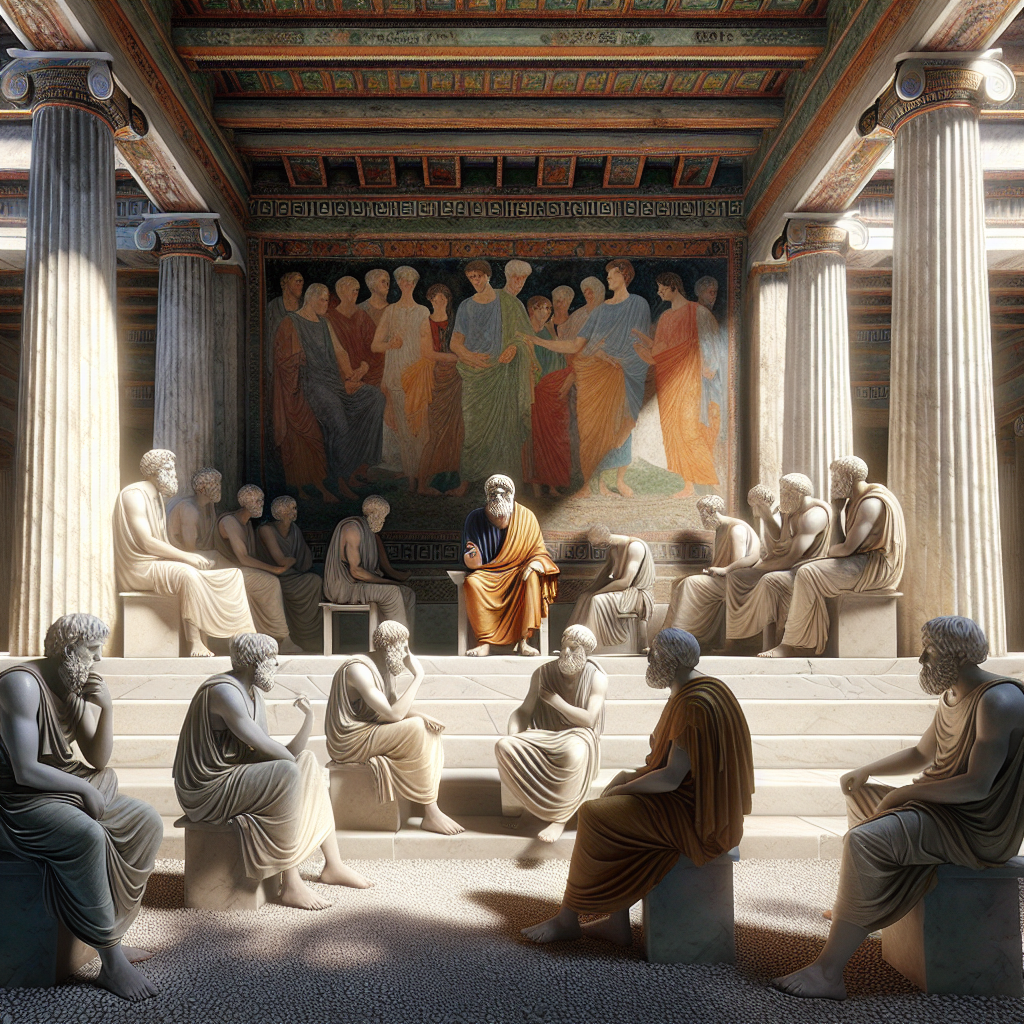Origin story of Stoicism
- Xfacts

- Aug 31, 2024
- 2 min read
Stoicism, a timeless philosophy born in ancient Greece, has transcended through centuries to offer us a robust framework fostering resilience, peace of mind, and moral fortitude in the modern world. The foundation of Stoicism finds its roots in the Stoa poikilê, a decorated porch in Athens' Agora where the early Stoic philosophers convened to share their wisdom and insights.
The Origins of Stoicism
Around 300 BCE, Zeno of Citium established the Stoic school, drawing inspiration from Socratic dialogues and teachings of notable philosophical schools like the Cynics, Plato's Academy, and the Megarian School. Zeno's successors, Cleanthes of Assos and Chrysippus of Soli, continued to sculpt the principles of Stoicism, evolving it into a comprehensive philosophy encompassing physics, logic, and ethics.
Stoicism in Roman Times
During the Roman era, Stoicism gained prominence, attracting influential figures like Cicero, who although not a Stoic himself, advocated for its teachings in Rome. Perhaps the most renowned Stoic from this time was Marcus Aurelius, the Roman emperor celebrated for his contemplative work "Meditations," which delved into Stoic philosophy.
The Threefold Nature of Stoicism
Stoic philosophy, as delineated by Zeno, encapsulated three fundamental components:
Physics (Phusikê): Understanding the natural order of the universe and one's place within it.
Logic (Logikê): Cultivating sound reasoning and rational thinking.
Ethics (Êthikê): Nurturing virtuous character and ethical conduct.
Stoicism's Enduring Relevance
In our contemporary society, characterized by its fast-paced nature and numerous stressors, Stoicism stands as a beacon of resilience and wellbeing. The core tenets of Stoicism, emphasizing personal accountability, acceptance of the present moment, and focusing on what is within our control, offer solace amidst chaos.

Stoa Poikilê: The Iconic Porch in Athens
Embracing Stoic Principles
The wisdom imparted by Stoicism is not confined to the pages of history but serves as a practical guide for navigating life's challenges with grace and fortitude. The philosophy's teachings empower individuals to cultivate inner peace, develop resilience in adversity, and strive towards ethical excellence.
Stoicism in Practice
Modern Stoicism enthusiasts engage in practices such as journaling, mindfulness, and reflecting on Stoic texts to internalize its principles. By integrating Stoic philosophy into their daily lives, individuals find a profound sense of purpose, enhanced emotional well-being, and a deeper understanding of the human experience.

Marcus Aurelius: Prominent Stoic Figure





Kommentare